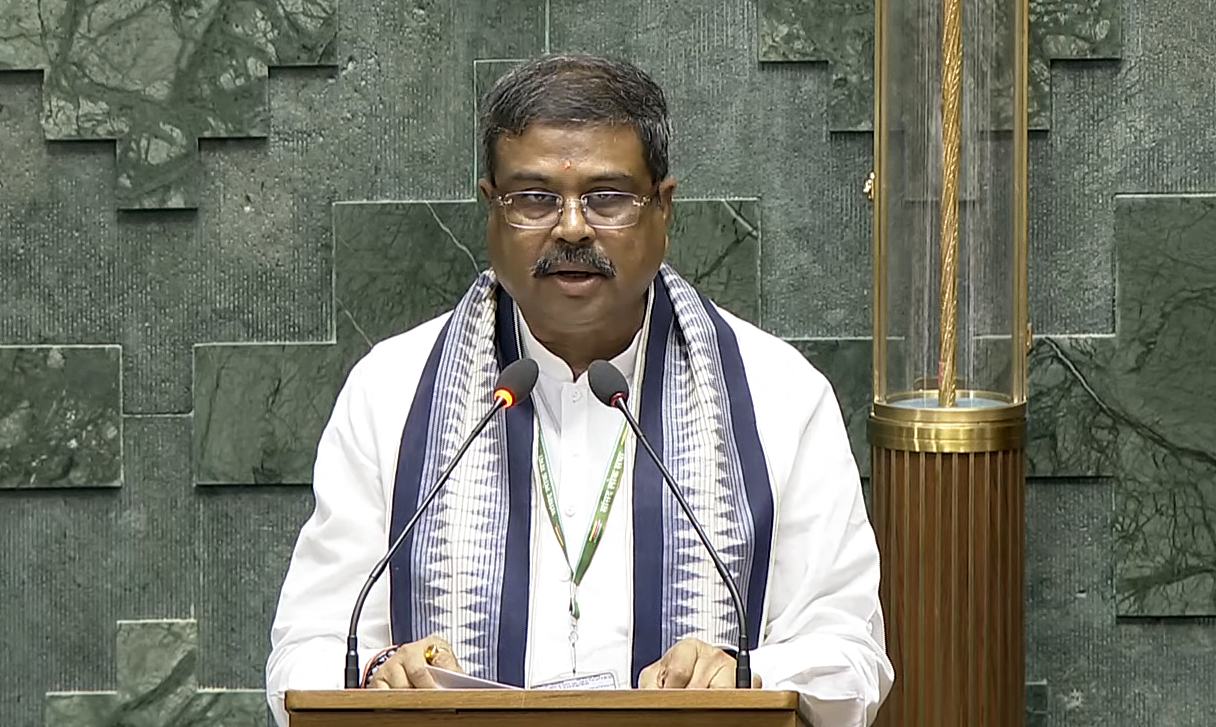Union Education Minister Dharmendra Pradhan inaugurated the two-day Vice-Chancellors’ Conference of Central Universities at Kevadia, Gujarat, on Thursday. The event brought together over 50 Vice Chancellors of leading central universities to review and strategize the implementation of the National Education Policy (NEP) 2020 and to align their institutions with the national vision of Viksit Bharat 2047.
Pradhan highlighted the sweeping changes India’s higher education system has undergone in the past decade, calling it a fundamental transformation marked by flexibility, interdisciplinarity, inclusivity, and innovation. He noted that total student enrolment has increased to 4.46 crore—up 30% since 2014–15—with female enrolment growing by 38%. For the first time, the gross enrolment ratio (GER) for females now exceeds that of males. Ph.D. enrolment has almost doubled, and female Ph.D. scholars have increased by 136%. GER has also improved significantly among Scheduled Tribes and Scheduled Castes, reflecting the government’s commitment to inclusive education and social equity.
The Minister introduced the “Panch Sankalpa” (five resolutions) of NEP 2020—Next-Gen Emerging Education, Multidisciplinary Education, Innovative Education, Holistic Education, and Bharatiya Education—as the guiding principles for transforming higher education institutions into future-ready, value-based learning centres. He urged Vice Chancellors to adopt a “Students-First” approach and ensure that institutions become engines of empowerment, skilling, and nation-building.
Shri Pradhan stressed the importance of raising the GER in higher education to 50% by 2035. He said this goal would require urgent action in redesigning curricula, strengthening digital infrastructure, promoting faculty development, and encouraging multidisciplinary and multilingual approaches.
Calling for full implementation of NEP 2020, the Minister urged each university to prepare a comprehensive strategy paper. This should include integration of Indian Knowledge Systems (IKS), adoption of technology-driven education, skilling initiatives, and the organisation of conferences like the VC Conference at the university level.
The Minister also underlined the importance of the “Academic Triveni Sangamam”—celebrating India’s cultural past, recalibrating the present narrative, and shaping the future global role of Indian higher education.
In his address, Dr. Hasmukh Adhia, Chancellor of the Central University of Gujarat, emphasized the relevance of the six principles of Karmayoga and the foundational value of Indian Knowledge Systems in shaping both individual character and national progress.
Secretary of Higher Education Dr. Vineet Joshi, reflecting on the five-year journey of NEP 2020, described the conference as an opportunity to assess achievements and refine future strategies. He reiterated that NEP 2020 reimagines higher education institutions not merely as degree-granting bodies but as ecosystems fostering innovation, critical thinking, and holistic development.
Additional Secretary Dr. Sunil Barnwal underscored the five foundational pillars of NEP—Access, Equity, Quality, Affordability, and Accountability—emphasizing the importance of collaborative efforts among all stakeholders to achieve the policy’s goals.
In his concluding remarks, Prof. Rama Shanker Dubey, Vice Chancellor of the Central University of Gujarat, assured that central universities would take proactive steps to align their strategies with the vision of Viksit Bharat.
Over the course of two days, the conference will feature ten thematic sessions focused on key dimensions of higher education reform, including curriculum redesign under NHEQF/NCrF, future job readiness, digital platforms like SWAYAM and AAPAR, university governance through the SAMARTH system, equitable access in higher education, promotion of education in Indian languages, innovation, internationalisation, faculty development through the Malaviya Mission, and integration of traditional knowledge systems.
Participating institutions include the University of Delhi, Jawaharlal Nehru University (JNU), Central University of Rajasthan, Central University of Kashmir, Indira Gandhi National Tribal University (IGNTU), Tripura University, Sikkim University, National Sanskrit University, and many others.










